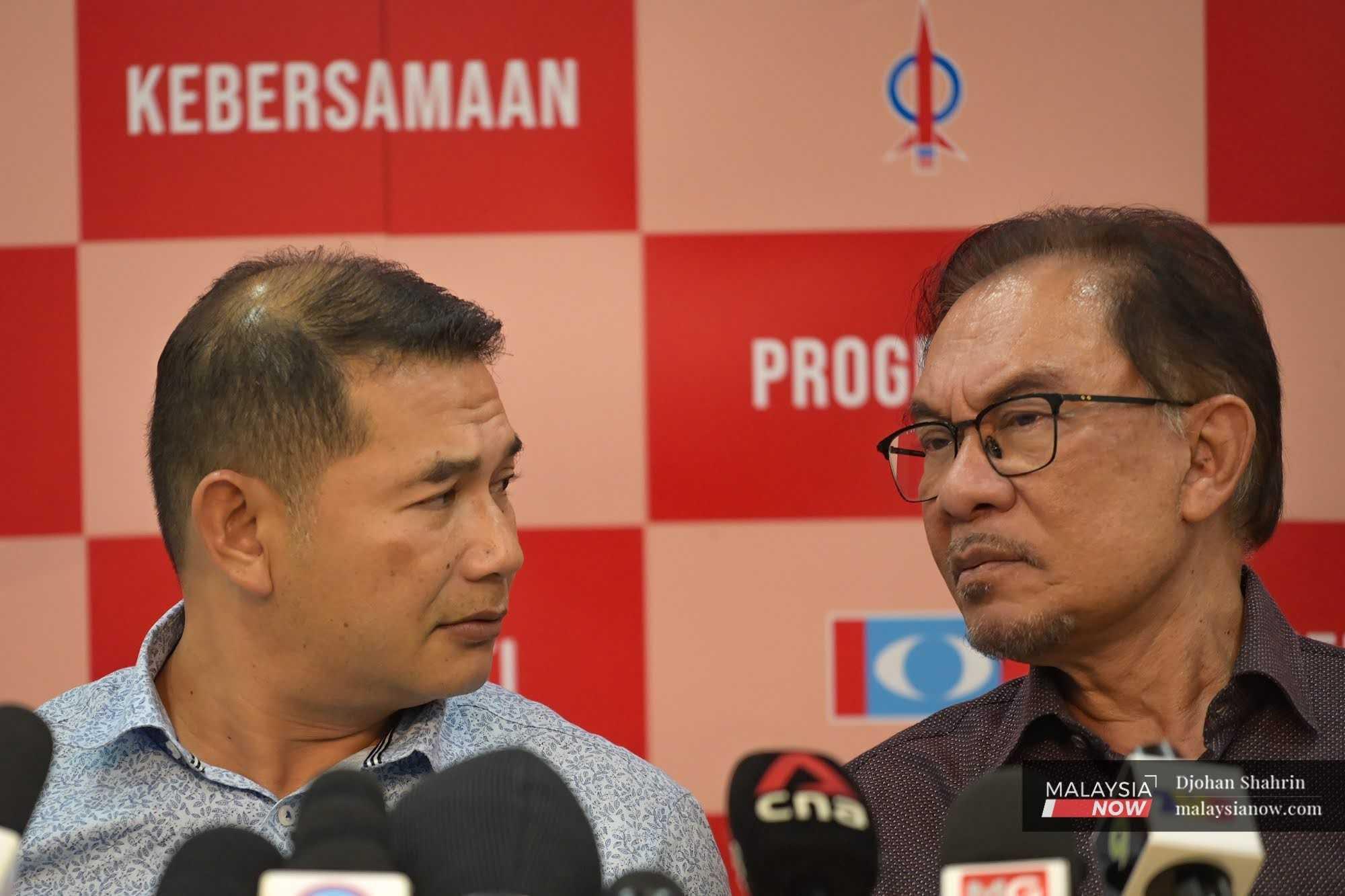More questions after Rafizi explains Anwar's double role in Cabinet
His explanation of 'extraordinary circumstances' requiring Anwar Ibrahim to hold the finance portfolio as well may not satisfy everyone.
Questions have been raised over Prime Minister Anwar Ibrahim's decision to helm the finance ministry in addition to the top office despite efforts to explain the move by Economic Affairs Minister Rafizi Ramli.
Speaking at his first press conference as a minister, Rafizi, Anwar's deputy in PKR, had cited extraordinary circumstances in explaining Pakatan Harapan's (PH) decision to back down from its stand on separating the role of prime minister and finance minister in order to prevent the abuse of power.
At a campaign event for the Padang Serai election, the Pandan MP also said that Anwar's personality differed from that of Najib Razak, who had likewise done double duty as both prime minister and finance minister.
Najib was eventually convicted of corruption and is currently serving a 12-year jail term at Kajang Prison.
Bersih chairman Thomas Fann said Rafizi should explain the "extraordinary circumstances" requiring Anwar to take on the finance portfolio in the new government.
"Is he implying that if he doesn't, someone else not from PH would want it?"
Civil society groups and watchdogs have long championed the separation of powers in the name of government integrity, citing issues such as the prime minister's power to appoint top civil servants such as the head of the Malaysian Anti-Corruption Commission.
Recently, the Malay rulers also proposed that the prime minister stay out of the appointment of members to the Judicial Appointments Commission.
In 2015, Rafizi himself submitted a private member's bill to prevent individuals from holding the posts of prime minister and finance minister at the same time.
Anwar's assumption of the finance portfolio was also criticised by his political opponents, including Bersatu vice-president Radzi Jidin who said it would destroy the mechanism of checks and balances.
"Malaysians who understand the governance of the country will certainly not agree," he said.
"The most basic thing in a country is to have a solid and strong governance system. This system will be able to protect and ensure that government money is used efficiently as a whole."
Nik Ahmad Kamal Nik Mahmood of the International Islamic University Malaysia said the explanation of "extraordinary circumstances" would not satisfy the masses as Anwar had been seen as trying to set his administration apart from those of his predecessors Najib and Dr Mahathir Mohamad.
"The excuse given is like trying to find a justification that may not convince everyone," he said.
"We just hope that at some point later on, the position will be given to another MP, taking into account the pros and cons of holding such an important portfolio."
For now, Nik Ahmad said, Anwar and the new government could be given the benefit of the doubt.
He added that PH had no choice but to prioritise the matter, given the promises it had made.
"Politicians must be careful about the promises they make," he said.
"If they cannot keep them or find it difficult to make good on them, it's better not to make any such promises at all."
Fann meanwhile said it was too early to assess PH's ability to fulfil its other pledges on the separation of powers, integrity and governance.
"We have called on him to expedite reforms so that any doubts about his commitment to fighting corruption and promoting good governance are removed," he said.
Subscribe to our newsletter
To be updated with all the latest news and analyses daily.
